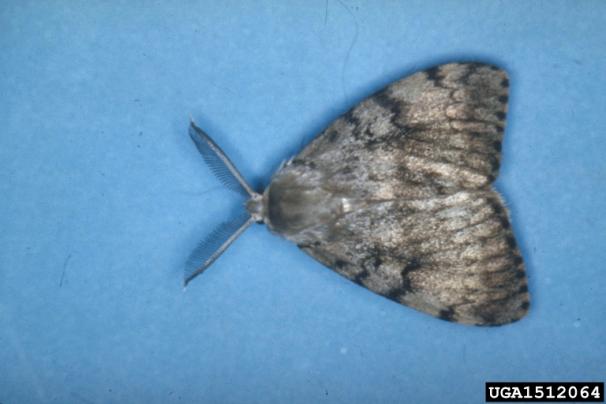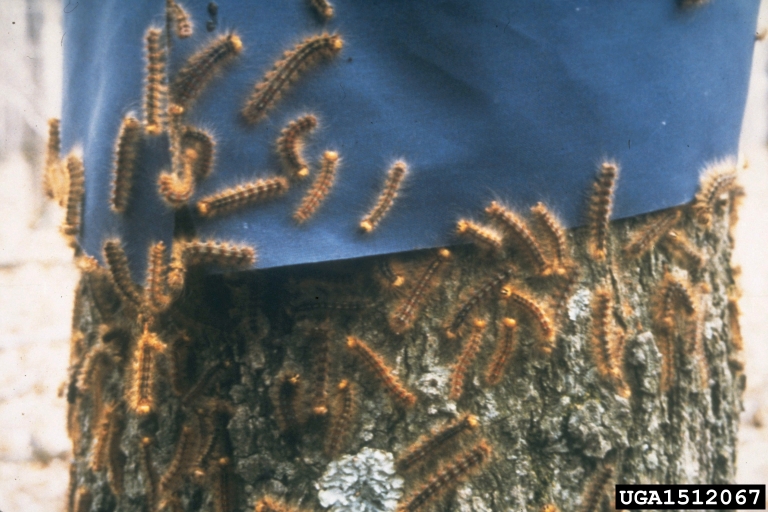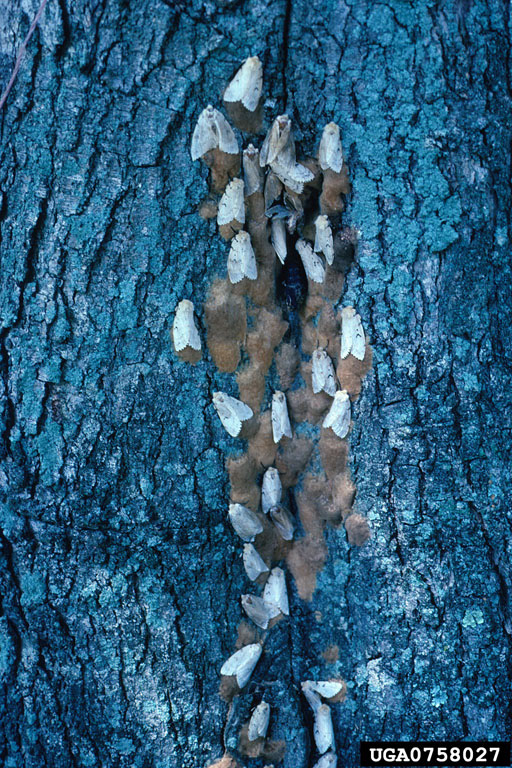Gypsy Moth
The gypsy moth, which came from France, is considered one of the most important pests of red and white oaks in the Northeast. It has spread southward into Virginia and is continuing to move south.

About Gypsy Moth
Older larvae are brownish-gray, with tufts of hair on each segment and a double row of five pairs of blue spots, followed by six pairs of red spots, on the back. Mature larvae are from 1 1/2 to 2 1/2 inches (40 to 60 mm) long. Adult male moths are dark brown, with wavy dark bands across the forewings. Females are white and cannot fly.

Hosts
Gypsy moth is known to feed on over 300 trees and shrubs. Favored hosts include oak, apple, alder, basswood, birch, poplar, sweetgum, willow, and hawthorn. Less favored host species include hickory, maple, cherry, cottonwood, elm, black gum, larch, sassafras, and hornbeam. Some mortality even occurs in white pine. Many other plants may be fed upon.
Damage Caused by Gypsy Moth

It causes widespread defoliation, resulting in reduced growth, loss of vigor, mortality, and reduces aesthetic, recreational, and wildlife values. Gypsy moth larvae can be a serious nuisance in urban and recreation areas.
How to Control Gypsy Moth
An effective way to dispose of gypsy moth life stages is to remove them by hand. Scrape egg masses from their locations with a putty knife, stiff brush, or similar hand tool. Dispose of egg masses and other life stages in a container of hot water, household bleach, ammonia, or kerosene. Gypsy moth hairs, found attached to all life stages, can cause people who are allergic to them to have skin rashes or respiratory reactions. If necessary, wear gloves, protective clothing, and a dust mask.
Natural controls, including introduced insect parasites and predators, virus diseases, and adverse weather conditions, help control the gypsy moth. Chemical and microbial insecticides have been used, primarily in urban and recreation areas, to prevent defoliation and nuisance effects of the pest.
If you would like more information about gypsy moth, please contact your local MFC forester.
